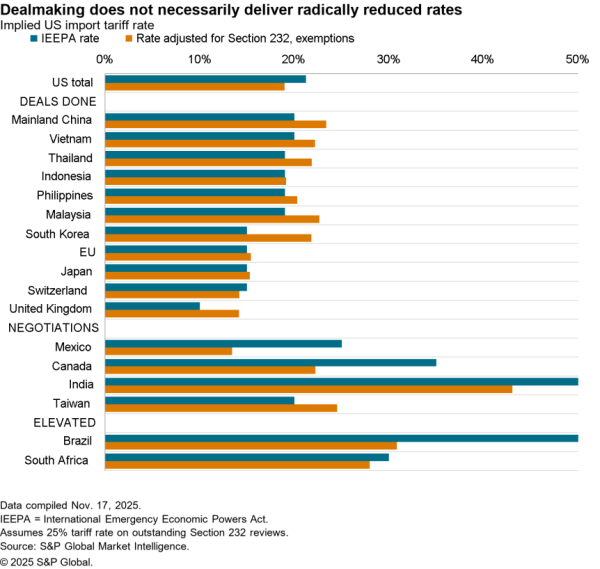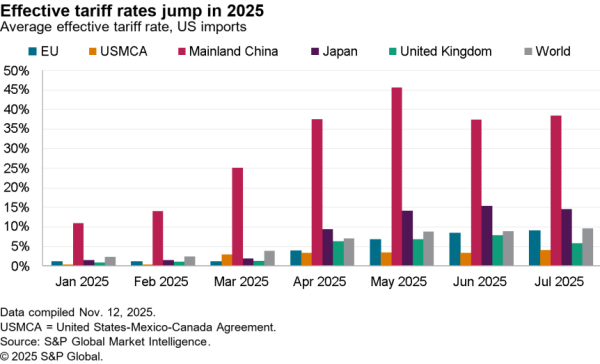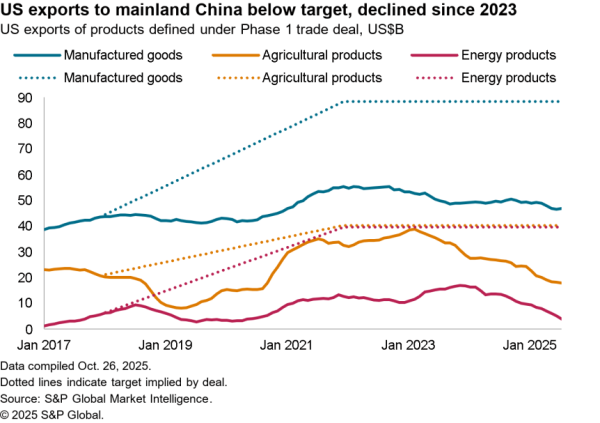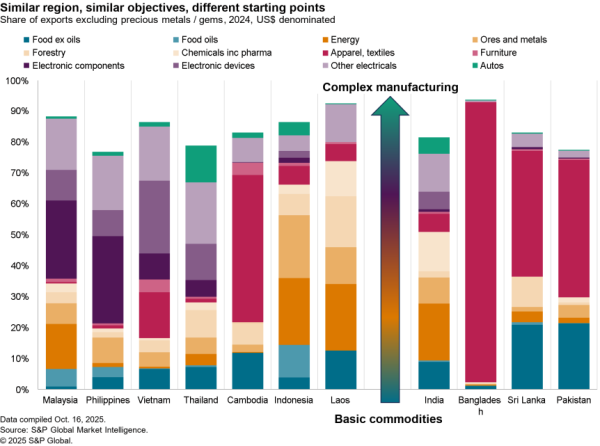The ongoing U.S.-China trade war is causing companies globally to review the structure of their supply chains. A survey by Baker McKenzie found that 82% of companies across Asia are shifting their supply chains as a response to tariffs, South China Morning Post reports. Looking globally a large, but declining, proportion of companies are discussing the impact of trade policy – including tariffs as well as Brexit – in their earnings calls over the past year.
A similar pattern is appearing in the earnings reports for the calendar first quarter of 2019. Panjiva analysis of S&P Global Market Intelligence transcripts for conference calls held since Apr. 1 shows that 125 of 617 companies (20.3%) that have held calls discussed tariffs or Brexit. That’s down from 23.3% in calls discussing the 4Q 2019 earnings reports.
The drop has been most precipitous in mentions of tariffs specifically fell to 12.2% from 21.6%, though the same size is still small at around 7.5% of all companies typically holding calls each quarter.
It’s also likely however that the delay in the implementation of a new round of tariffs by the Trump administration, combined with a delay in Brexit as outlined in Panjiva’s research of Apr. 11, has genuinely reduced companies’ concerns about trade policy

Source: Panjiva
Most sectors have seen a decline in mentions of trade policy, with the Consumer Discretionary sector seeing the most significant drop to 18.8% from 33.6%. That may increase though as the automakers – which face a variety of tariffs including steel and aluminum as well as the section 232 review of the automotive industry – report in the coming weeks.
The Industrials sector continued to have the highest proportion of companies mentioning tariffs at 40.2% of the total. That shouldn’t be a surprise given U.S. tariffs on Chinese exports are focused on industrial supply chain components.

Source: Panjiva
The outlier has been the materials sector which saw an increase in the number of companies mentioning tariffs or Brexit to 27.6% from 25.3% in the prior quarter. On top of China tariffs the steel and aluminum tariffs applied by the U.S. government has become an issue in the ongoing ratification of the U.S.-Mexico-Canada Agreement.
Aluminum-maker Alcoa‘s CEO, Roy Harvey, has “become increasingly concerned” that quotas will replace tariffs on Canadian exports to the U.S. and that “tariffs have not solved the industry’s challenges“. The same will likely apply to the steel industry that will “erode import volume, while increasing import prices” according to Steel Dynamics‘ CEO Mark Millett.
Broadly speaking though the section 232 duties on steel and aluminum have only had a marginal effect on basic steel imports, seaborne imports of which fell 7.0% year over year in 1Q Panjiva data shows. The impact on specialty steel has been more marked with a 19.7% slump.
In the case of aluminum tariffs may have had little impact given seaborne shipments in 1Q increased by 13.7% year over year. The latter may indicate that 10% duties have been insufficient to change supply change behaviors, raising the imperative for applying quotas instead of tariffs.

Source: Panjiva




